Barely a week from now the 4,000 workers at the Volkswagen of America plant in Chattanooga will begin voting on whether they want to join the United Auto Workers in the first test of the UAW’s effort to sign up workers at the foreign-owned automotive plants that have popped up across the United States over the last four decades.

UAW President Shawn Fain is directly overseeing the latest drive to organize plants in the southeast.
The vote, running from April 17 to 19, will be supervised by the National Labor Relations Board. The outcome will be a critical test for the United Auto Workers Union and its firebrand President Shawn Fain. After winning lucrative new contracts from the Detroit Big Three last autumn, Fain has made organizing so-called “transplants” a top priority.
The VW plant in Chattanooga, Tennessee will see the first test of that strategy. They previously rejected the union by narrow margins. This third vote will either end in another humiliating defeat for the union, or set off an earthquake that will shake the North American auto industry to its foundation. A vote in favor of the UAW would upend decades of conventional wisdom about the difficulty or organizing workers at foreign automakers with their sophisticated human resources departments and their subtle but continuous anti-union campaigns.
Critical moment for the UAW.
Harley Shaiken, a labor expert from University of California-Berkeley, says a victory for the UAW would be a huge win for the union, on par with the victory in Sit Down strike against General Motors in 1937, which reverberated through U.S. for years afterwards.
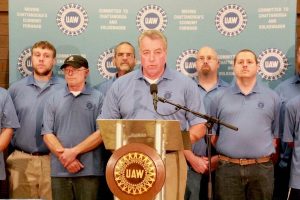
Gary Casteel, the UAW’s Secretary Treasurer and leader of the union’s organizing effort in Chattanooga in 2014, is meeting with VW to discuss the future of the plant.
“It’s like the forty-fourth day of the Sit-Down strike,” Shaiken said during a telephone interview.
The UAW came close to organizing the workers at the Chattanooga plant in 2019 but was hurt by the bribery scandal that eventually landed a dozen UAW officers – including two former presidents — to jail.
Cleaning up the union
The scandal inside the union led directly to a sweep by reformers, who elected an outsider, Shawn Fain, as the union’s president. Reformers now dominate the union’s executive board, which guided the UAW through the successful “Stand-Up Strike” against Detroit’s three automakers last year.
Sir Angus Deaton, the Dwight D. Eisenhower Professor of Economics at Princeton University, and a Nobel Prize-winning economist, said he has long considered unions a threat to economic efficiency. But he has changed his mind following the success of the Stand-Up strike. He believed it helped address the inequality that has become a feature of the U.S. economy, according to a paper prepared for the International Monetary Fund.
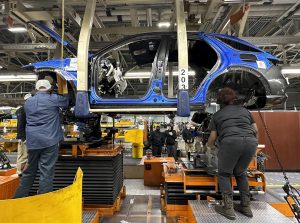
Workers at the Mercedes plant in Alabama assemble a new EV. The plant is expected to be the second to have a vote on the UAW organizing drive.
“It turns out that the manufacturers actually had quite a bit of profit margin, which this strike forced them to share with the workers. That’s an old idea in economics, too, but not one that’s much currently practiced — that there’s actually a gap which is available for either profits or wages. And there’s a sort of class struggle over who gets that,” Deaton said of the Stand-Up strike during a recent interview.
Most of the European and Asian automakers operating in the South did offer employees pay increases for their employees after the UAW won a big raise in the negotiations with Ford, General Motors and Stellantis.
More UAW News
- UAW Launches Massive Organizing Drive
- UAW Set to Call for Vote at Mercedes Plant in Alabama
- UAW Endorses Biden for Second Term
Union zeroes in a wages and benefits
During the UAW’s new drive to organize workers in the South, which began in December, Fain has laid out the position that Southern autoworkers are not getting their fair share of profits produced by their employers. Adjusted for inflation, wages and benefits at Southern plants have been slipping over the past decade, according to the UAW.
Fain wrote recently in an op-ed in The Detroit News that, “For centuries, the southern economy has been a scheme designed to enrich a select few at the expense of many. It’s a system where the wealthy and powerful have hoarded the wealth and monopolized the power. They have dominated state governments and written laws to protect their own interests. They think of the world as divided between those who make the rules and those who are ruled.”
According to the UAW, workers are becoming receptive to the message from Fain and union supporters in their ranks.
“We’re voting yes to win a better life for ourselves and our families,” said Isaac Meadows, an assembly worker at Volkswagen told UAW organizers. “We need a say in our schedules, benefits, pay, and more. We’re proud to work at Volkswagen, but we also know the value of a voice at work,” he added.
Republicans in South move to block union drive.
VW officials say the ultimate decision on unionization is up to the employees, just as it has been in the previous votes in 2014 and 2019 when union supporters lost.
But Tennessee’s conservative political establishment has come out against the UAW’s unionizing drive.
The UAW “cares more about politics than their membership,” Weston Hamp, the Republican mayor of Chattanooga said during a news conference outside the VW plant. He was joined by other political leaders urging employees to reject the UAW. Among other things, they claimed a victory by the UAW would hurt the state’s economy. Other Republican state leaders have said the UAW does not represent Tennessee values, according to local media.
Just the start
“It’s no surprise that politicians in Alabama and Tennessee are speaking out against the UAW. They will frame it in terms of keeping the state attractive for new investment. It may be less effective at VW Chattanooga this time because it’s happened before. It doesn’t address any of their immediate concerns in the plant,” Stephen Silvia, a professor at American University in Washington D.C., who has studied the growth of the auto industry in the South, said in an email.
A win in Chattanooga would mark a turning point for the UAW which has lost about 80% of its membership since reaching a peak of nearly 2 million in the 1970s. The union is already working to win over workers at a number of other transplants. It is expected to send a petition calling for a vote at the Mercedes-Benz plant in Alabama in the coming weeks.

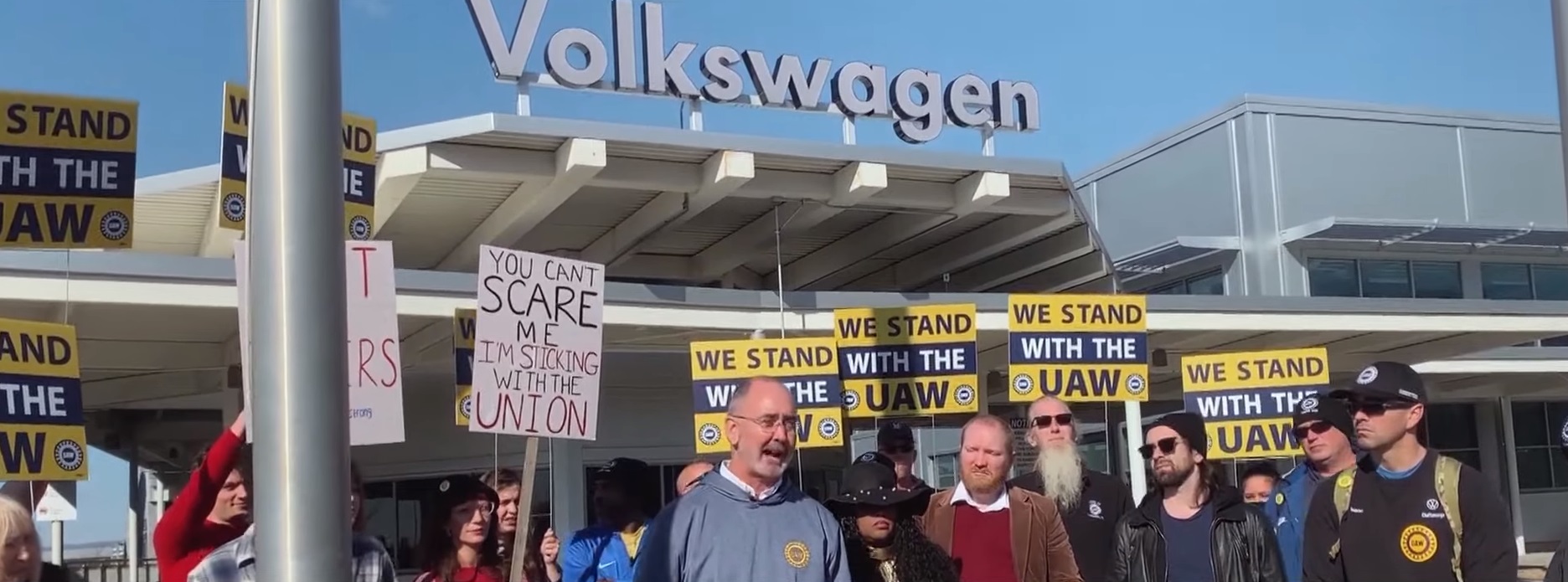
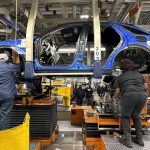

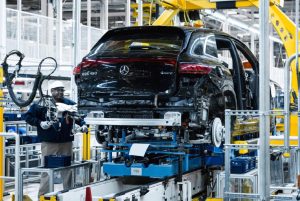
0 Comments